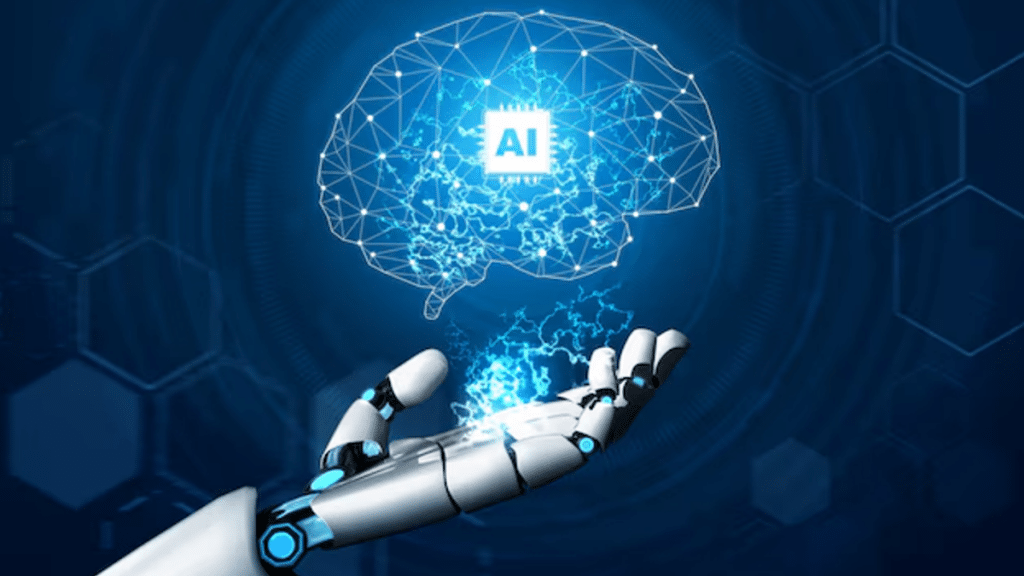Have you ever wondered how machines are capable of thinking, learning, or even solving complex problems just like humans? This remarkable phenomenon is driven by artificial intelligence (AI), a field that has revolutionized how we interact with technology.
Artificial intelligence is no longer confined to science fiction; it is a part of our daily lives. From smart home devices to advanced medical diagnostics, AI is reshaping industries and impacting society in profound ways. Let’s explore what artificial intelligence is and why it holds such significance in today’s world.
What Is Artificial Intelligence?
Artificial intelligence refers to the simulation of human intelligence in machines programmed to think, reason, and make decisions. AI systems can perform tasks that traditionally require human intelligence, such as problem-solving, understanding natural language, recognizing patterns, and even making predictions.
AI can be broadly classified into two types:
- Narrow AI: This form of AI is designed to perform a specific task efficiently. Examples include voice assistants like Siri or Alexa, and recommendation systems used in platforms like online slot games.
- General AI: Still a concept rather than reality, this type of AI would have the ability to understand, learn, and apply knowledge across a wide range of tasks, just like a human.
With advancements in machine learning, a subset of AI that focuses on data-driven learning, AI has reached new heights of accuracy and reliability.
Why Is Artificial Intelligence Important?
Artificial intelligence is not just a technological development; it is a driving force behind numerous innovations that impact various aspects of life and business. Here are a few key reasons why AI is essential:
1. Automation of Tasks
AI has revolutionized industries by automating repetitive and time-consuming tasks. For instance, in manufacturing, robots powered by AI handle assembly lines, while in customer service, AI chatbots address common queries efficiently.
2. Improved Decision-Making
AI systems can analyze massive amounts of data to provide actionable insights. Businesses use AI to predict market trends, optimize supply chains, and enhance customer experiences, ensuring better outcomes.
3. Enhancing Healthcare
In healthcare, AI-powered diagnostic tools can identify diseases with incredible precision. From predicting outbreaks to personalizing treatment plans, AI helps save lives by enabling faster and more accurate interventions.
4. Driving Innovation in Entertainment
The entertainment industry has adopted AI to personalize user experiences. For example, platforms offering online slot gacor games utilize AI algorithms to recommend themes and features based on user preferences, making gameplay more tailored and enjoyable.
Applications of Artificial Intelligence
AI’s influence is visible in almost every sector. Below are some areas where AI plays a pivotal role:
1. Healthcare
AI systems assist in early diagnosis of diseases, robotic surgeries, and drug discovery. Wearable devices powered by AI monitor patient health in real time.
2. Education
From personalized learning platforms to virtual tutors, AI helps create tailored educational experiences that adapt to a student’s pace and learning style.
3. Finance
AI is used for fraud detection, credit scoring, and algorithmic trading. These systems analyze financial data at lightning speed to provide reliable insights.
4. Transportation
Self-driving cars and intelligent traffic management systems are prime examples of AI transforming transportation to make it safer and more efficient.
5. Retail
AI helps retailers predict consumer behavior, optimize inventory, and enhance the overall shopping experience through personalized recommendations.
Challenges in Artificial Intelligence
Despite its remarkable benefits, AI faces several challenges:
- Ethical Concerns: The use of AI in areas like surveillance raises privacy concerns. There’s a need for transparent guidelines to address ethical issues.
- Job Displacement: Automation driven by AI may lead to job losses in certain industries, making workforce adaptation crucial.
- Bias in Algorithms: AI systems are only as good as the data they are trained on. Biased data can result in unfair outcomes.
- High Costs: Developing and maintaining advanced AI systems requires significant resources, limiting accessibility for smaller organizations.
The Future of Artificial Intelligence
AI is poised to bring further transformative changes in the years to come. Innovations like quantum computing and more advanced machine learning algorithms will enhance AI capabilities. However, striking a balance between progress and ethical responsibility will remain critical.
Conclusion
Artificial intelligence has transitioned from an abstract concept to a practical tool that drives progress across multiple industries. By automating tasks, improving decision-making, and fostering innovation, AI continues to demonstrate its importance in our lives. While challenges remain, the potential for AI to create positive change is immense.
As we advance further into the AI era, understanding and responsibly leveraging its capabilities will determine how beneficial it becomes for humanity.
